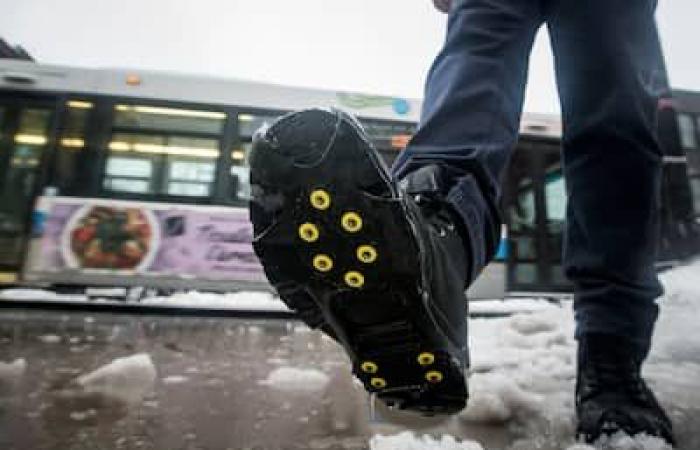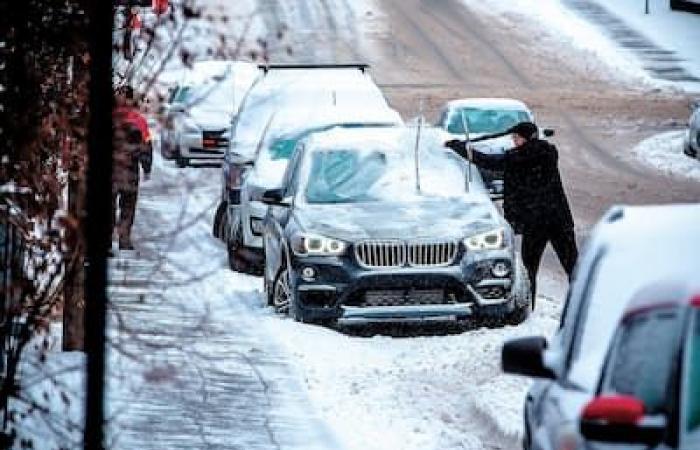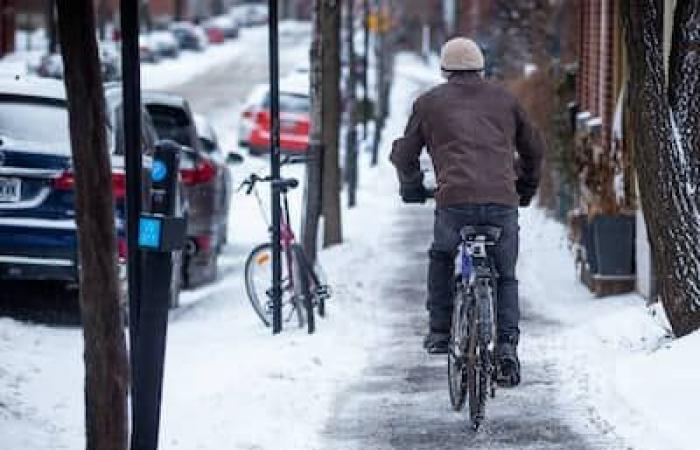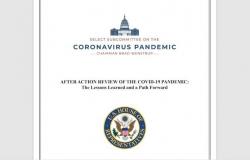The month of November has barely ended and the province has already been hit by a first episode of freezing rain, a harbinger of a winter where we will have to be cautious in the face of precipitation of all kinds.
If the season should start in cold and snow, winter could get bad as early as January and February, while a meteorological cocktail of rain, freezing rain, sleet and snow is expected in southern Quebec, according to Météomedia forecasts.
To reduce the risk of injuries related to freezing rain when traveling on foot or by car, or during a power outage at home, here are 12 tips to apply during the winter, according to the Quebec government website .
At home
1- Prepare an emergency kit for the home.
In the event of a power outage caused by freezing rain, make sure you always have at home:
– 6 liters of drinking water per person;
– 3 days of non-perishable food;
– a manual can opener;
– a battery-powered radio and spare batteries;
– a flashlight;
– a lighter or matches and candles for lighting;
– a first aid kit;
– a sufficient quantity of your prescription medications.
2- Keep an eye on the weather forecast.
When a weather alert is issued, take the opportunity to recharge your electronic devices in the event of a power outage, and to check that you have what you need to stay at home for a few days to avoid unnecessary travel.
PHILIPPE-OLIVIER CONTANT/AGENCY QMI
3- Have salt or sand to spread in the driveway.
To avoid the risk of falling in your exterior entrance, it is possible to bring salt or sand to spread on the ground, in order to increase grip on the ground.
If the bag is too heavy for you, call on a relative or neighbor to come and spread some on the ice after an episode of freezing rain.
4- Shop for a good shovel
Every year, many back, shoulder and neck injuries occur when clearing snow from your driveway.
It is therefore important to equip yourself with a lightweight shovel with an ergonomic handle, that is to say one whose shape is adapted to facilitate work, or even with a sled shovel or snow pusher, which makes it possible to push the snow instead of lifting it, recommends the Quebec government.
Make sure you’re warmed up before you start, and listen to your body.
If you are unable to do this on your own, call on a loved one to help you.
5- Check your roof for falling ice
Ice on the roof can become dangerous for your family or for a passerby if it accumulates: keep an eye on ice piles and have them removed before they fall from the roof.
On foot
To make your travel on foot easier during the winter season:
6- Wear shoes with an anti-slip device, such as crampons, to reduce the risk of falling or slipping.
Phot d’archives Agence QMI, Toma Iczkovits
7- Plan your trips.
If an episode of freezing rain is forecast, plan your outings accordingly, for example by doing your errands before or after the storm – once the path is safe again.
On the road
8- Prepare your vehicle for winter.
Although the deadline for installing your winter tires is December 1, it is recommended to make the change sooner rather than later, well before the first snow, to avoid unpleasant surprises on the road.
9- Shelter your vehicle
If you have a shelter or garage, leave your vehicle inside during freezing rain to avoid headaches when hitting the road.
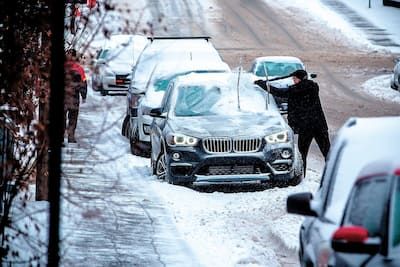
Photo Agence QMI, Toma Iczkovits
10- De-ice your vehicle well
To ensure good visibility on the road, for yourself and other users, take the time to de-ice each window and each headlight of your vehicle before starting to drive.
In passing, remove any snow or ice that could block the exhaust pipe to avoid carbon monoxide poisoning once the engine is running.
11- Avoid unnecessary travel
Find out about road conditions before getting behind the wheel, and postpone unnecessary trips when weather conditions are more difficult, to reduce the risk of an accident.
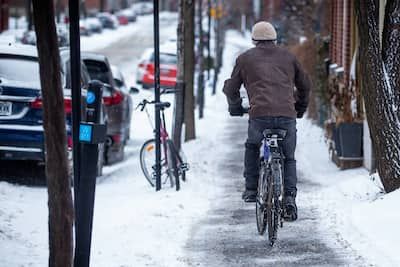
TOMA ICZKOVITS/AGENCE QMI
12- Adapt your driving
If you absolutely must take the road, adapt your driving to the road conditions, maintaining a lower speed and avoiding sudden maneuvers.
• Also read: 5 tips for driving safely in ice
In the event of a power outage caused by ice:
– Never use a barbecue or any other fuel-burning appliance inside the house, including gasoline generators or camping stoves, to avoid carbon monoxide poisoning.
– If you must use a generator, place it outside the house, away from doors and windows, so that combustion gases do not enter the home
– If you have a propane or wood fireplace, make sure it is not blocked by ice or snow before using it.
– Install carbon monoxide detectors on each floor of your home, in the hallways leading to bedrooms and, if applicable, in the room above your garage.
– Keep your refrigerator door closed as much as possible to better preserve your food. In case of prolonged outage, be sure to sort them before consuming them.


